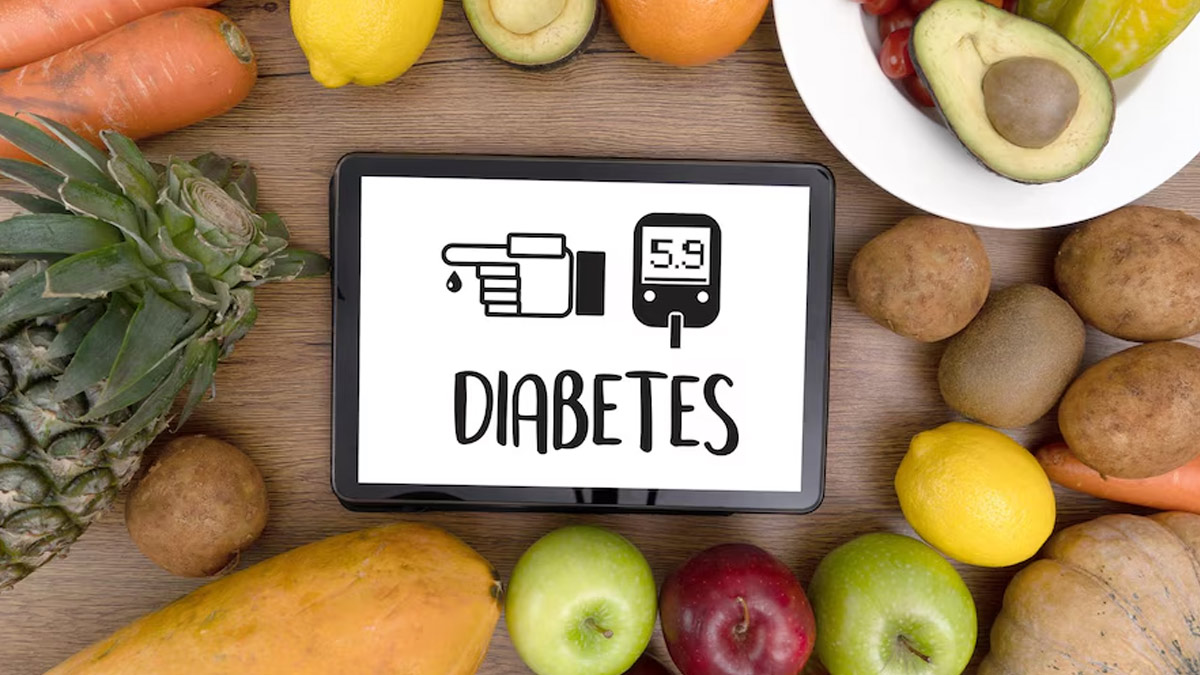Diabetes Diet Expert Shares Important Dietary Changes For Anyone New To Type 2 Diabetes – Onlymyhealth
Chronic disease, such as type 2 diabetes or prediabetes, is related to the life-long process of how the human body metabolises glucose. To effectively manage type 2 diabetes or prevent prediabetes from progressing to type 2 diabetes, significant lifestyle modifications are necessary, especially in terms of diet. We spoke to our expert Dr Tejashwini Deepak, MD, FACE, FEDM, Endocrinology, Apollo Spectra Hospital, Bengaluru, who listed important dietary changes that you should follow if you are diagnosed with type diabetes.

“For those newly diagnosed, understanding which dietary adjustments can make the most significant impact is crucial as it helps you control your blood sugar, manage your weight and control heart disease risk factors. These factors include high blood pressure and high blood fats,” highlighted Dr Deepak. The kinds of fat you consume have greater significance than the overall quantity of fat you consume, as stated by the American Diabetes Association(ADA).

“If you consume excess fats and carbohydrates in foods, they lead to elevated blood sugar levels. Complications may occur if blood sugar is not regulated; some of these complications include high blood sugar levels known as hyperglycemia. If this high level persists for a long time, it may result in long-term effects like damage to nerves and organs like the kidneys and heart”, added Dr Deepak.
Also Read: Snacks For Diabetics: Expert Lists Diabetes-Friendly Snacks With 200 Calories Or Less
Dietary Changes To Follow If You Have Diabetes
Here are the most important diet changes for anyone new to type 2 diabetes, as listed by Dr Deepak:
Focus on Whole Foods

One of the most significant dietary changes involves prioritising whole, minimally processed foods. This includes:
- Fruits and Vegetables: Aim for a diverse range of colours and types, including non-starchy vegetables, such as leafy greens, broccoli, and peppers.
- Whole Grains: Consume more whole grain products like brown rice, quinoa, oats, and whole products over refined grains.
- Lean Proteins: Include lean meats, fish, eggs, beans, and legumes in your diet. However, plant proteins are more beneficial due to their higher fibre content
Monitor Carbohydrate Intake
Carbohydrates directly affect blood sugar levels, making it crucial to manage both the quantity and quality of carbohydrates consumed.

- Carb Counting: Understand how to use carbohydrate counting to manage your blood sugar levels as it helps to figure out how different foods affect your blood glucose.
- Choose Complex Carbs: Opt for complex carbohydrates, which have a lower glycemic index and are slow to digest, providing more energy.
- Limit Simple Carbs: Reduce intake of simple carbohydrates found in sugary snacks, sodas, and processed foods.
Incorporate Healthy Fats

Healthy fats are an essential part of a diabetes-friendly diet, improving cholesterol levels and reducing inflammation. One can check for:

- Monounsaturated Fats: Found in olive oil, avocados, and nuts.
- Polyunsaturated Fats: Found in fatty fish (salmon and mackerel), flaxseeds, and walnuts.
- Avoid Trans Fats: Eliminate trans fats found in many fried and packaged foods as they increase the risk of heart disease.
[embedded content]
Watch Portion Sizes
Controlling portion sizes can help manage caloric intake and prevent blood sugar spikes. Strategies include:
- Use Smaller Plates: This can help in reducing the amount of food you eat.
- Read Labels: Pay attention to serving sizes on food labels to better understand how much you are consuming.
- Practise Mindful Eating: Focus on eating slowly and savouring each bite, which can help you recognise when you are full.
Stay Hydrated
Water is the best choice, but other options include:
- Herbal Teas: These are usually non-sweetened and can be a tasty substitute for water.
- Limit Sugary Drinks: Avoid sodas, fruit juices, and sweetened beverages, as they can cause significant blood sugar spikes.
Plan Balanced Meals

Dr Deepak said, “A combination of carbohydrates, proteins, and fats in appropriate proportions in meals assists in controlling fluctuations in blood sugar levels. Follow the plate method- half a plate of non-starchy vegetables like spinach, carrots, and tomatoes; one-quarter of the plate for proteins like lean meats, tofu, or legumes; the other quarter for whole grains or starchy vegetables like brown rice, whole-wheat pasta, or sweet potatoes.”
Lower the Daily Intake of Salt & Sugar
Excessive consumption of food high in salt and sugar can worsen diabetes complications. Tips to reduce these include:
- Use herbs and spices without adding salt or sugar.
- Choose fresh or frozen over canned foods as they often contain added salt and sugar.
- Look for products labelled as ‘no added sugar’ and choose low-sodium options.
Bottomline
Dr Deepak concluded, “Adopting these dietary changes can significantly impact the management of type 2 diabetes, helping to maintain stable blood sugar levels and improve overall health. Beyond these basic principles, there is no universal eating pattern that suits everyone living with type 2 diabetes. It’s important to work with a doctor, to create a personalised eating plan that meets individual needs and preferences. Embracing a balanced, nutritious diet is a vital step toward living well with type 2 diabetes.”
[Disclaimer: This article contains information provided by an expert and is for informational purposes only. Hence, we advise you to consult your expert before adding anything in your diet, especially if you are dealing with any health issues.]






